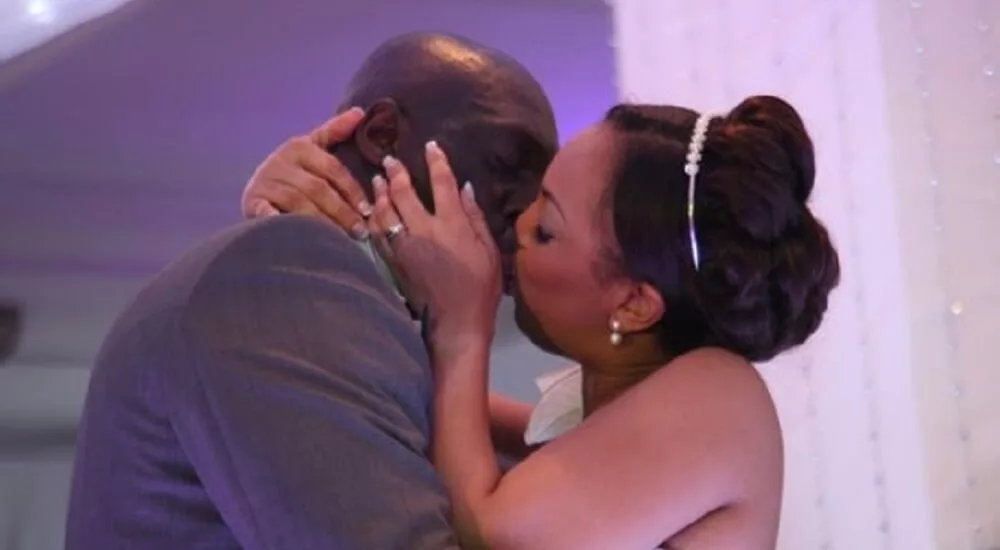Nollywood’s Kissing Double Standard

Nigerians Rate Kissing In Nollywood, Foreign Movies
Estimated Reading Time: 7 minutes
Key Takeaways:
- There exists a double standard when Nigerians react to kissing scenes in Nollywood compared to foreign films.
- Social media plays a key role in shaping public opinion about romantic displays in movies.
- Cultural expectations influence perceptions of married actors in Nollywood.
- The debate impacts Nollywood filmmakers and creative expression.
Table of Contents
- Introduction
- Double Standards in Audience Reactions
- Social Media Amplifies the Debate
- Cultural Norms and Expectations
- Impact on Creative Expression
- Contradiction Between Online Condemnation and Box Office Success
- Public Comments and Social Media Reactions
- Related Incidents and Examples
- Broader Context and Industry Implications
- Conclusion
- FAQ
- Sources and Further Reading
Introduction
In Nigeria, attitudes toward kissing scenes in films expose a fascinating cultural contradiction. The article from The Whistler Newspaper reveals the double standards at play when Nigerians react to kissing scenes in Nollywood compared to those in foreign movies. While romantic displays in Nollywood often draw criticism, similar kisses in Hollywood or Bollywood are widely accepted and even celebrated. This blog post delves deeper into the nuances of this debate, examining audience reactions, the role of social media, and the broader implications for Nollywood filmmakers.
Double Standards in Audience Reactions
Nigerians frequently showcase a critical stance when it comes to kissing scenes featuring married actors in Nollywood films. Here are the key points:
- Heavy Criticism: Audiences often accuse married actors of being “disrespectful” to their spouses when they kiss on-screen.
- Social Media Outcry: Posts denouncing these scenes trend often, highlighting the discomfort some viewers feel.
- Foreign Acceptance: The same audiences enjoy and share clips from foreign films featuring kisses, without any backlash.
This disparity highlights a complex social dynamic within Nigerian cinema. The local actors face scrutiny, while foreign productions escape similar judgment The Whistler Newspaper Article.
Social Media Amplifies the Debate
Social media serves as a powerful tool for amplifying these discussions. Consider these aspects:
- Trending Hashtags: After the release of Nollywood films, hashtags critical of romantic displays commonly trend, showcasing public sentiment.
- Celebrating Foreign Films: Conversely, clips from Hollywood and Bollywood featuring kissing scenes are widely shared and praised across social platforms.
- Cultural Expectations: This contradiction raises questions about moral consistency and how cultural expectations shape perceptions of what is acceptable.
The influence of platforms like Twitter and Instagram cannot be underestimated in shaping the narrative around romance in films.
Cultural Norms and Expectations
Cultural norms in Nigeria dictate a more conservative approach to public displays of affection, especially involving married individuals. Here’s how these norms play out:
- Public Image: Many Nigerians expect married actors to maintain a reserved public persona, refraining from romantic displays.
- Distance from Foreign Films: Foreign films are often viewed as distant narratives, leading audiences to apply different standards.
- Perception & Judgment: This cultural distance results in a divided perception, influencing how romantic scenes are judged in Nollywood.
These societal expectations complicate viewing experiences and affect how stories are told in Nollywood films Industry Analysis.
Impact on Creative Expression
The pressures around kissing scenes in Nollywood pose significant challenges for filmmakers:
- Creative Limitations: Filmmakers express concern that societal pressures may stifle creative expression in the industry.
- Character Development: Romantic scenes are vital for the growth of characters and story arcs. Removing them could render films less engaging.
- Cultural Sensitivity vs. Creative Freedom: As Nollywood gains global recognition, balancing cultural values with artistic storytelling becomes essential.
The challenge lies in how filmmakers navigate these societal norms while striving to tell authentic and relatable stories.
Contradiction Between Online Condemnation and Box Office Success
Despite a wave of online commentary opposing romantic dramas, the box office paints a different picture:
- Major Audience Draw: Romantic films continue to attract large audiences, indicating a disconnection between public outrage and viewing habits.
- Hypocrisy in Consumption: The contradiction highlights that people may criticize what they secretly enjoy, showing a complex relationship with romantic content in local versus foreign films.
This dissonance poses critical questions about consumer behavior and cultural hypocrisy.
Public Comments and Social Media Reactions
Reactions from social media users provide insight into the divided opinions regarding kissing scenes:
- Defenders: Some viewers argue that kissing is merely part of performing a role. This sentiment suggests that acting should not reflect the actor's private life.
- Critics: Others vehemently oppose kisses in movies, perceiving them as a betrayal to real-life partners.
- Navigating Fiction and Reality: The ongoing debate often centers on how Nollywood blurs the lines between fiction and reality for its audience.
These discussions showcase the intense scrutiny that Nollywood actors endure compared to their international counterparts Related Incidents.
Related Incidents and Examples
Recent incidents highlight the polarization surrounding kissing scenes:
- Etim Effiong and Bolaji Ogunmola’s On-Screen Kiss: A viral clip featuring married actors Etim Effiong and Bolaji Ogunmola stirred online outrage. Critics questioned why married actors would portray romance, while supporters defended it as professional acting.
- Public Figure Comments: Voices like Uche Okoki and Shesupe Blessing encapsulate the debate. Some argue for the legitimacy of acting, while others stand firm against perceived moral breaches.
This incident exemplifies how public scrutiny can impact an actor’s career and personal life.
Broader Context and Industry Implications
As Nollywood evolves, it faces significant challenges and opportunities:
- Global Reach: Nollywood is growing on the international stage, leading to increased expectations concerning cultural representation and storytelling standards.
- Moral Inconsistency: The disconnect between local condemnation and international enjoyment reflects a deeper moral inconsistency influenced by culture and national identity.
- Audience Consumption Patterns: Understanding why audiences react differently to Nollywood versus foreign films is vital for filmmakers aiming to resonate with viewers.
These factors will shape the future landscape of Nollywood and highlight the need for industry adaptability as it answers global storytelling demands.
Conclusion
The discourse surrounding kissing scenes in Nollywood films encapsulates a broader cultural conflict. The contrasting reactions between local productions versus foreign films reveal deep-rooted cultural expectations, moral judgments, and the quest for creative expression. As Nollywood continues to thrive and penetrate global markets, filmmakers must navigate these polarizing sentiments carefully to maintain both cultural integrity and artistic innovation.
FAQ
Q1: Why do Nigerians criticize kissing scenes in Nollywood films?
A1: Many Nigerians harbor traditional values that expect married actors to present a conservative image. Kissing scenes often challenge these norms, leading to criticism.
Q2: How do social media platforms influence public opinion?
A2: Social media amplifies discussions around kissing scenes, providing spaces for both condemnation and support, affecting the perception of actors and storytelling in Nollywood.
Q3: Are foreign films judged the same way as Nollywood films?
A3: Generally, foreign films enjoy increased latitude in public acceptance. Nigerians often view these films as narratives detached from their cultural and moral expectations.
Sources and Further Reading
- The Whistler Newspaper Article: Nigerians Rate Kissing In Nollywood, Foreign Movies
- Related Incidents: Etim Effiong and Bolaji Ogunmola’s On-Screen Kiss
- Industry Analysis: The Paradox of Nollywood
This comprehensive exploration provides insights into the complexity of audience reactions to romantic scenes in Nollywood compared to foreign films.










